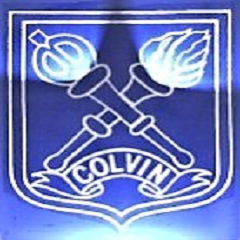
Gilbert Colvin Primary School
Science
Intent
At Gilbert Colvin Primary School, our science curriculum is designed to be a stimulating curriculum that nurtures children’s natural curiosity and their intellectual development. It inspires our pupils to embrace challenges, have a passion for learning, take risks, collaborate, and aspire to achieve their best in our aspirational and inclusive environment. It creates a sense of awe and wonder for our children, who are encouraged to ask questions about the world around them, which leads to them seeing themselves as scientists.
Through our high quality science curriculum, our children:
- develop scientific knowledge, skills and conceptual understanding through high quality lessons and enquiries that are progressive across the school;
- ask questions about the world around them; they are resilient and learn through exploration;
- take advantage of school and the local environment to develop a love, curiosity and care for the natural world;
- learn about scientists (past & present) and use this as inspiration to make positive contributions to the world;
- have real world experiences through curriculum enrichment activities like trips and workshops;
- make links with other subjects to help them remember their learning;
- are challenged to ask questions about science and become independent scientific thinkers;
- celebrate their achievements in science and are proud of their work.
Implementation
We use White Rose Science to meet the requirements of the national curriculum. This enables our pupils to know more and remember more as they develop their knowledge and skills throughout school. Each year group plans to look at key scientists (past and present) and their accomplishments - these are used to inspire the children. All lessons are progressive across the key stages and allow the children to use prior learning to support them in science.
All year groups plan a variety of enrichment experiences for children linked to the topics. These can include going on trips, welcoming visitors to our school, and participating in workshops.
Assessments are completed after each topic using the White Rose assessments.
'Working scientifically' skills are embedded within our curriculum as pupils focus on the key features of scientific enquiry and seek answers to questions. Children are encouraged to be independent when working on investigations.
Lessons are adapted so that all children can achieve. Children working at greater depth are identified and challenged so that they can question their learning and become increasingly independent when working scientifically.
Classes have working walls which support the children with their learning throughout each topic. Key vocabulary is used in every lesson and pupils have access to high-quality scientific resources.
Impact
Our successful approach to science ensures pupils:
- have a high quality and practical science curriculum based on developing their knowledge and understanding of the world around them;
- demonstrate an enthusiasm and enjoyment of science;
- become independent and curious scientists who ask questions and find things out for themselves;
- leave for secondary school equipped with the science knowledge and skills to succeed in their further education.
What our pupils think about Science at Gilbert Colvin Primary School
 |
 |
||
|
|
||
|
|

